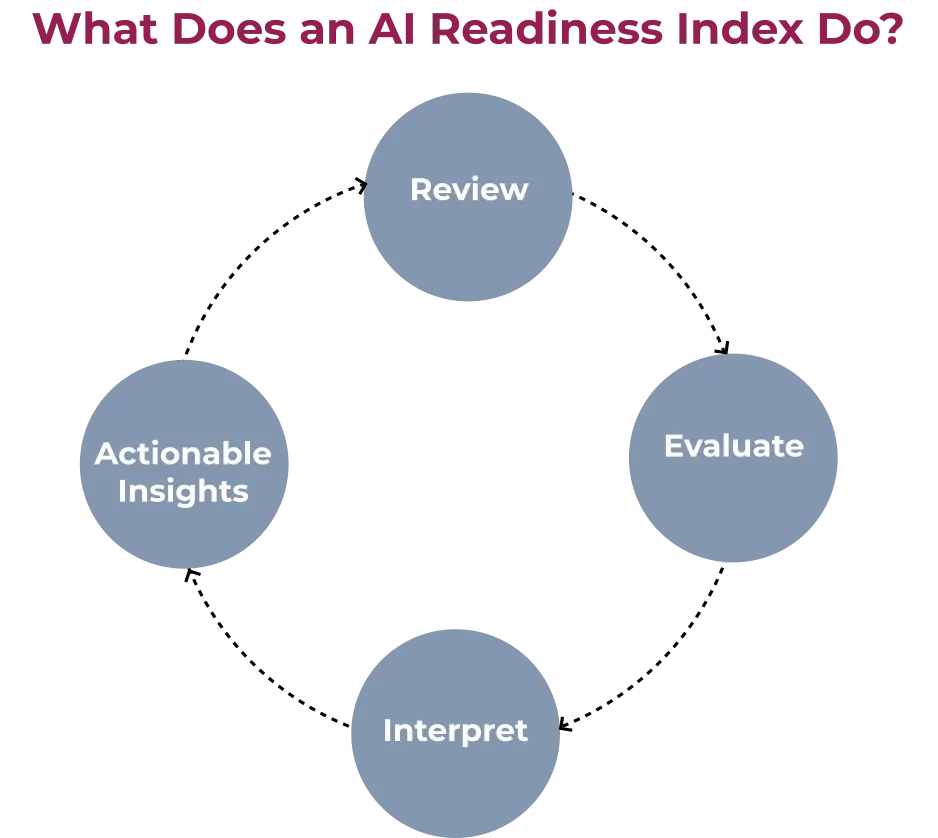AI. It’s not just a buzzword anymore; it's a business imperative. Every company is scrambling to harness its potential, promising transformative changes, from customer interactions to supply chain efficiencies. And while the hype is real, so is the reality: most AI projects are failing to deliver. Yes, you heard that right. We're not talking small stumbles here; we're talking about a silent epidemic of stalled projects, wasted investments, and frustrated teams. Are you ready to face the truth?
The Cold, Hard Truth: Most Organizations Aren't AI Ready
Let's pull back the curtain on the AI fairytale. Recent research from BCG paints a stark picture:
- ● A staggering 74% of companies are struggling to achieve and scale AI value. They're stuck in pilot purgatory, unable to translate initial ideas into concrete, business-altering results. Their lack of AI readiness is a major roadblock.
- ● Only a meager 26% have developed the capabilities to move beyond proof-of-concepts (POCs) and generate real, measurable value. This small fraction understands the importance of being AI ready and has taken steps to build it.
Think about those numbers for a second. Three-quarters of businesses, despite all the hype and investments, are still groping around in the dark. Why? Because many are diving headfirst into the AI deep end without knowing how to swim. They’re skipping vital steps and expecting miracles, and, spoiler alert, it doesn't work that way.
These numbers aren't just figures on a page; they represent missed opportunities, wasted resources, and a growing gap between AI leaders and laggards. The common denominator? A lack of understanding of their current AI readiness.
Why AI Projects Fail: The Core Issue – A Lack of AI Readiness
The problem isn't the technology itself; it's a fundamental misunderstanding of what it takes to succeed with AI – a lack of organizational AI readiness. Consider these alarming stats:
Gartner's research reveals a stark reality: 56% of organizations cite a lack of skills as the primary reason for their AI project failures. This crucial gap in expertise highlights a widespread problem – businesses are rushing headlong into AI without proper planning, and without understanding their current level of AI readiness. They're treating AI like a magic bullet, instead of recognizing it as the complex tool it truly is, leading to predictable disappointments.
It's the equivalent of launching a spaceship without a launchpad; it’s simply doomed to fail. Does this sound familiar? Your organization might have dabbled in AI, only to find itself lost, confused, and far from achieving its goals. If this is the case, it's time to acknowledge that your AI readiness may not be where it needs to be.
The High Stakes of Ignoring AI Readiness: A Dangerous Gamble
Imagine investing heavily in a high-tech AI solution, only to realize your data is a mess, your team doesn’t have the skills, and your leadership isn't aligned on the strategic importance of AI. This isn’t a hypothetical scenario; it’s the reality for many companies that fail to prioritize AI readiness.
Companies rush in, driven by FOMO, without taking a good hard look at their own AI readiness. But, by doing so, they're ignoring the essential groundwork required for success. Without that groundwork, they’re essentially throwing money and time into the void.
The Solution: The Power of an AI Readiness Assessment
The path to AI success begins with understanding your current position, your strengths, and your weaknesses – and that’s exactly where the AI readiness assessment comes in. It’s not just a check-box exercise; it's a strategic tool designed to provide a holistic view of your organization’s AI readiness.
A comprehensive AI readiness assessment helps you:
- ● Identify Gaps: A thorough assessment pinpoints areas where you need to improve. This includes your data infrastructure, talent pool, and the overarching AI strategy. It’s not about where you wish to be; it’s about understanding where you are.
- ● Set Realistic Goals: By understanding your current AI readiness, you can establish achievable AI adoption targets. No more chasing unrealistic promises – your goals become grounded in reality.
- ● Mitigate Risks: A proper AI readiness assessment helps prevent costly mistakes and potential failures by proactively identifying and addressing challenges before they become disasters. It helps you understand what is coming ahead, based on where you are now.

An AI readiness assessment offers a clear, data-backed picture of where you stand and provides a roadmap for improvement. It provides a holistic view of your AI maturity through an executive-level analysis of your strategic vision and a detailed departmental evaluation of digital maturity and potential AI applications. This approach ensures actionable insights tailored to both your overall AI readiness and specific departmental needs.
2025: The Year to Prioritize AI Readiness
As we move further into 2025, the gap between those who are truly AI ready and those who aren't will widen further. The time to prioritize AI readiness is now. This year needs to be all about proper preparations.
Your 2025 AI Playbook - Building AI Readiness
Success in AI isn’t about having the latest technology; it’s about having the right strategy, built on a foundation of solid AI readiness. Start with these steps:
- ● Assess Your Readiness: Identify where you stand and what gaps need addressing.
- ● Set Clear Objectives: Define what success looks like for your organization.
- ● Invest in Skills: Upskill your teams to ensure they’re equipped to handle AI initiatives.
- ● Collaborate Across Teams: Break down silos and foster collaboration for smoother implementation.
- ● Monitor and Adapt: Use data-driven insights to continuously refine your approach.
So, what’s your 2025 AI strategy? Let’s figure it out together. Start your journey with our AI Readiness Assessment and take the first step toward measurable success.
Ready to get started? Schedule a free consultation with us today, and let's plan your AI-powered future. Take our Random Walk AI Readiness Assessment and gain a clear understanding of your AI readiness, allowing you to make informed decisions moving forward.






